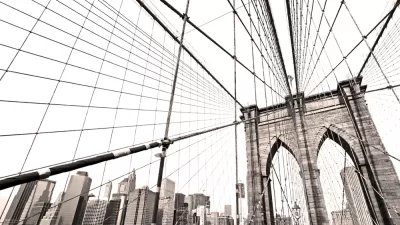World Bank President Jim Yong Kim explains why climate change is a poverty issue - and why we must tackle it today to ensure that carbon emissions do not continue rising after 2016. Establishing a world price on carbon will be difficult to achieve.
Cindy Huang blogs on an extended discussion that World Bank President Jim Yong Kim had with the News Hour's Jeffrey Brown on April 18. Brown's "Newsmaker Interview" of Kim, "World Bank Announces Goal to End Extreme Poverty by 2030" was aired and appears on video and text. The supplemental climate change discussion was captured on video and summarized by Ms. Huang.
The video begins with Brown asking Kim to explain why he considers climate change to be a poverty issue. Kim points to environmental and energy problems that need to be tackled today in The Phillipines and Africa. He also points to the urgency in reducing emissions in China, Europe and the United States.
Kim addressed the urgency of climate change and how World Bank is working to combat its effects. He says they must increase financial resources for sustainable energy, use innovative agriculture and partner with major cities to reduce their carbon footprint.
It would have been helpful had Brown asked Kim to define "sustainable energy" - a term he used throughout the 3:41 minute interview. However, Kim clearly played-up the need for determining "a stable price on carbon".
But getting different international powers to agree on things like the price of carbon has been one of the challenges in the effort to curb climate change. Kim said once that is decided, the market forces will kick in and regulate emission.
After emphasizing sustainable energy, carbon pricing and "climate-smart agriculture", Kim turned his attention to "cleaner cities".
Kim cites the efforts of New York City as an example of a successful urban clean-up. New York is on track to have reduced its carbon footprint by 30 percent by 2017, reaching their target goal ahead of their 2030 deadline.
He also cited transportation improvements in New Delhi where "all their buses and taxis run on clean natural gas".
FULL STORY: World Bank President: Climate Change Is Urgent 'Today' Problem

Study: Maui’s Plan to Convert Vacation Rentals to Long-Term Housing Could Cause Nearly $1 Billion Economic Loss
The plan would reduce visitor accommodation by 25,% resulting in 1,900 jobs lost.

North Texas Transit Leaders Tout Benefits of TOD for Growing Region
At a summit focused on transit-oriented development, policymakers discussed how North Texas’ expanded light rail system can serve as a tool for economic growth.

Why Should We Subsidize Public Transportation?
Many public transit agencies face financial stress due to rising costs, declining fare revenue, and declining subsidies. Transit advocates must provide a strong business case for increasing public transit funding.

How to Make US Trains Faster
Changes to boarding platforms and a switch to electric trains could improve U.S. passenger rail service without the added cost of high-speed rail.

Columbia’s Revitalized ‘Loop’ Is a Hub for Local Entrepreneurs
A focus on small businesses is helping a commercial corridor in Columbia, Missouri thrive.

Invasive Insect Threatens Minnesota’s Ash Forests
The Emerald Ash Borer is a rapidly spreading invasive pest threatening Minnesota’s ash trees, and homeowners are encouraged to plant diverse replacement species, avoid moving ash firewood, and monitor for signs of infestation.
Urban Design for Planners 1: Software Tools
This six-course series explores essential urban design concepts using open source software and equips planners with the tools they need to participate fully in the urban design process.
Planning for Universal Design
Learn the tools for implementing Universal Design in planning regulations.
City of Santa Clarita
Ascent Environmental
Institute for Housing and Urban Development Studies (IHS)
City of Grandview
Harvard GSD Executive Education
Toledo-Lucas County Plan Commissions
Salt Lake City
NYU Wagner Graduate School of Public Service



























